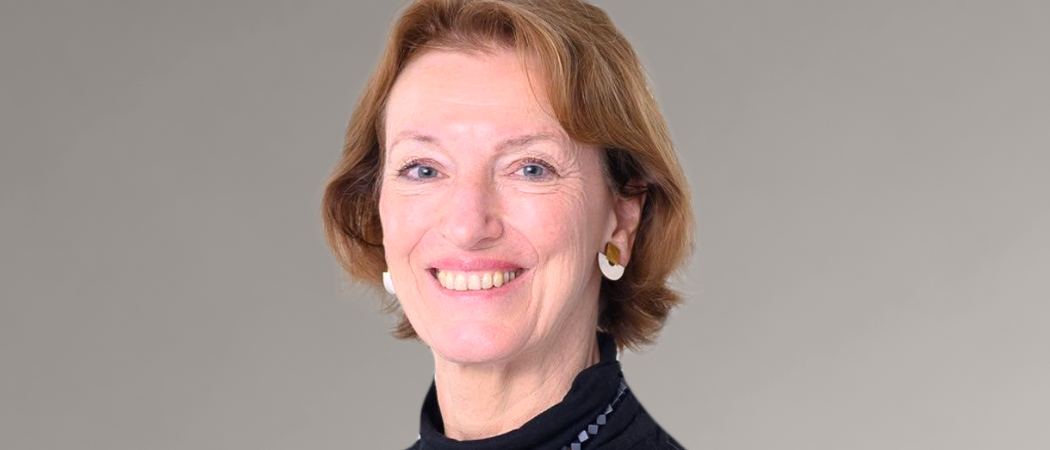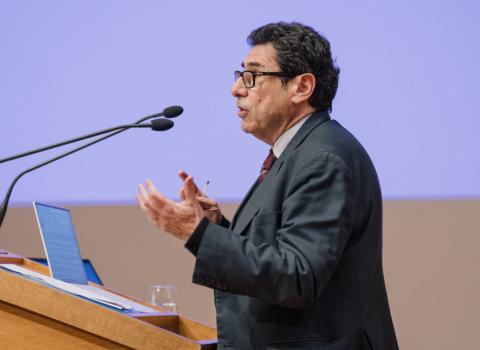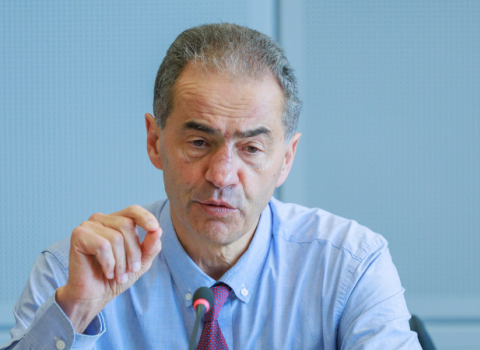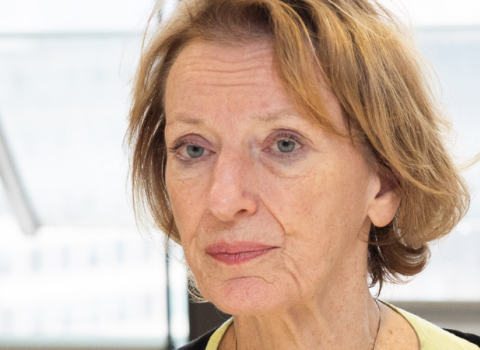In an exclusive interview, Maria Leptin goes over the debates and issues that will define the future of the EU’s basic research funder

Maria Leptin, president of the European Research Council. Photo credits: European Research Council
Maria Leptin has been re-appointed by the European Commission as president of the European Research Council (ERC) for another two years, as the research community raises concerns about the basic funder’s future budget and governance.
Leptin’s new mandate has started this week and will run until the end of September 2027, but the re-appointment comes at a time when the Commission is pushing for changes to the mandate of the president of the ERC.
Starting with the next iteration of Horizon Europe in 2028, the Commission wants to introduce changes to the ERC’s governance structure, including a shorter term for its president.
Article 8 of the 2021 Council decision on the “specific programme” for Horizon Europe says the mandate of the ERC president “shall be limited to four years, renewable once,” but in a proposal for Horizon Europe’s successor, the Commission said the mandate should be two years, renewable once.
Policy experts have already raised the alarm, arguing that the change could lead to more top-down control and would undermine one of the EU’s most successful scientific institutions. The plan is not set in stone as it has to go through lengthy negotiations with EU governments and MEPs before the expected start of the new Horizon Europe in January 2028.
In an interview with Science|Business, Leptin said she prefers to “stay out” of the debate around the length of the ERC president’s mandate, but she noted that “no other positions of this type have two-year mandates” as it takes time to get to know the field and then come up with and implement new ideas.
However, she said her latest two-year extension was not a departure, and has nothing to do with the debate on what will happen as of January 2028. “Even for my first mandate, the contract was for two years, and then extended for two years, and now it's been extended for another two years,” she told Science|Business. “I think that's normal.”
A Commission spokesman said the decision to renew Leptin’s mandate only for another two years would “ensure continuity of leadership and operations of the ERC for the last two years of the current Horizon Europe, while allowing at the same time a smooth transition for the ERC into the new Horizon Europe.”
Leptin joined the ERC in November 2021 at the end of a tumultuos period for the basic research funder. Italian-American scientist Mauro Ferrari joined as president in January 2020, but his mandate ended abruptly three months later, after he had locked horns with the the ERC Scientific Council over his proposal to set up a dedicated emergency fund for COVID-19 research at the ERC.
His proposal was at odds with the mission of the ERC to let scientists come up with projects on topics of their own choosing, as opposed to setting up dedicated schemes for specific topics. In the end, all the active members of the Scientific Council “individually and unanimously” requested that Ferrari resign, and the sudden end to his mandate meant that French mathematician Jean-Pierre Bourguignon had to come back to the post while the Commission started the search for a new president.
A push for more autonomy
So far during her mandate, Leptin has been a fierce defender of the ERC’s autonomy and its ability to continue to fund bottom-up, cutting-edge science without having to fall into any policy grooves set by the Commission.
Earlier this year, just weeks before the Commission put forward its proposal for the next iteration of Horizon Europe, Leptin and the ERC Scientific Council sent a letter to Commission President Ursula von der Leyen and EU research Commissioner Ekaterina Zaharieva asking for more independence through “a permanent, standalone structure within [Horizon Europe], with its own regulation, a scientific council appointed by the Commission as its governing board, and staff inherited from the [Commission’s] executive agency [for research].”
Leptin said the ERC has yet to receive a reply to that letter, but she understands that the Commission was “very busy” with drafting the proposal for the next Horizon Europe. “It was not at a time when we expected an immediate response, and so we haven't had an immediate response,” she said.
Related articles
- Single rulebook for EU research funding risks ‘death’ by inflexibility, warns ERC president
- Experts defend ERC from Commission overreach in FP10
- ERC makes bid to become a ‘permanent standalone’ EU body
As for the Commission’s proposal for Horizon Europe, Leptin said it was “fantastic” as it foresees a budget increase for the ERC, but she hopes that “it holds up” during negotiations. “It's not as if we've got that money in our pocket,” she said.
Leptin is also aware of concerns raised by the research community about the budget, including that funding for fundamental science may end up with less money overall even if the ERC budget is doubled. As of 2028, Horizon Europe is meant to work in sync with a new European Competitiveness Fund, and the assumption has been that this would also provide universities and other research organisations with funding to carry out basic research on strategic priorities. This now seems to have been ruled out.
While she is “not an expert” on this issue, “I see what I read and I listen, you know, but the experts will comment on that, and there will no doubt be further discussion,” she added.
Leptin has also voiced concerns over a Commission plan to standardise administrative processes for EU research funding to simplify access across a myriad of programmes. At a conference in Hamburg last month, she made the case for more flexibility. At the ERC “we don't use any of the mechanisms that are used elsewhere in the Commission. We have panels that are hand-picked by an independent scientific council,” she said.
Leptin says the Commission has reassured the ERC “in private conversations” that it won’t end up working under a single rulebook designed for the upcoming Competitiveness Fund. “I'm happy to hear that,” she said, while noting that during negotiations for the ongoing research programme “changes were made until the very last minute.”





 A unique international forum for public research organisations and companies to connect their external engagement with strategic interests around their R&D system.
A unique international forum for public research organisations and companies to connect their external engagement with strategic interests around their R&D system.